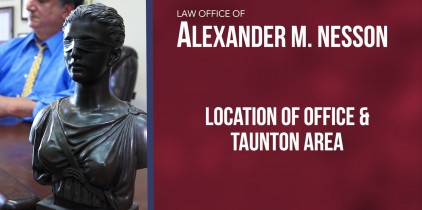It is not very difficult to provide the lawyer information necessary to do a Will or a Last Will and Testament. A lot of people put off making a Will, even though it provides a peace of mind because they think it is going to be complicated or difficult, but really they are just a […]
24
Aug
Parents have constitutional protected rights regarding custody, care, and control of their children. In addition, it allows the parents right and freedom to expose their own particular religious beliefs. There can be a lot of different issues if the interfaith spouse divorce and have disagreements over the religious upbringing of the children. In Massachusetts the […]
22
Aug
Some of the language is the “Ward” is the person who is under the “Guardianship” and generally there is a need for either physical or mental reasons that the person is incapable of managing his/her affairs either financial or personal or in many cases both. The Guardian is the person that the Probate Court manages […]
15
Aug
The answer to this question is generally No. Under the bankruptcy code one of the reasons is that the credit card company can challenge the debt is if the person used the card for a reasonable of no expectation of repaying the debt. The second one is irrelevant, but uses the credit card to buy […]
13
Aug
If you don’t have a Will, the government will assign one for you; and that means that the laws of Massachusetts will govern how your assets and estate are distributed and this can mean how you split it between your spouse, next of kin, children and that is the rules of the State rather than […]
06
Aug
Wills are generally the simplest way to override documents that give you the ability to distribute your estate and choose who your want your heirs to be, appoint a guardian and provide your belongings to who you choose. A Will can be a part of an Estate Plan, but it is not necessarily an entire […]
02
Aug
The answer is, usually you can amend the Schedule to add an overlooked debt. What happens is we file a Motion to Amend Schedule F and you would add the name of the Creditor and the amount of the debt. In addition, in some cases it actually is possible to re-open a bankruptcy after your […]
31
Jul
In general, tax debts are not necessarily dischargeable. However, there are some circumstances where tax debts do become dischargeable in Bankruptcy. If your taxes have been due for at least the three prior years when the return was actually filed and least two years since any assessment. There are some different issues that can […]
20
Jul
Recently, a student loan was discharged due to the debtor having Asperger’s Syndrome and it was reported that a student loan debt was about $350,000.00 and $100,000.00 was discharged. The cardinal rule is that student loans are not discharged into bankruptcy, but in order for that to occur; the student loan must show that the […]
13
Jul
The answer is in Massachusetts nothing prevents you under the Law from leaving one or all of your children out of your Will. You should generally use specific language to identify the child you wish to disinherit. There are some limitations with that, but there are more difficulties now under the new probate code; which […]








0